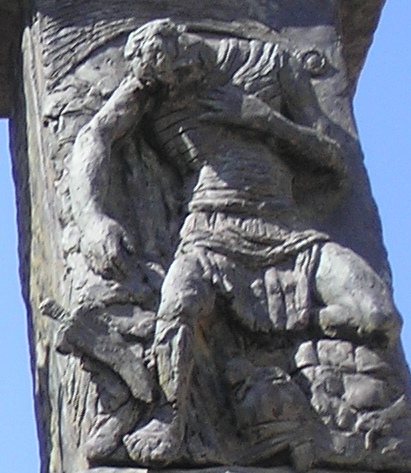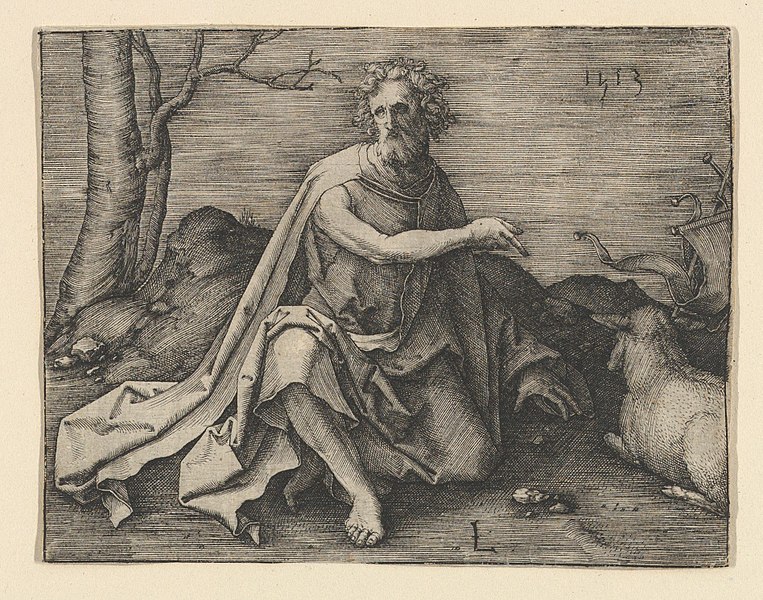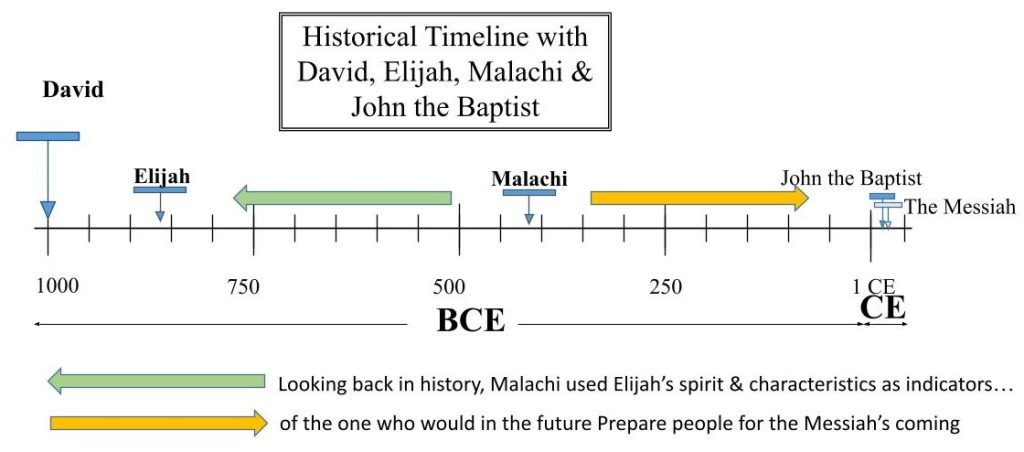
History remembers Simon bar Kokhba (Simon ben Kosevah) as the man who led and failed the last Jewish revolt against Imperial Rome from 132-135 CE. As the self-proclaimed prince of the Jewish people in Judea, he required that all Jews follow him into a war of independence against Rome. He led this revolt because the Romans were intending to build another pagan city (Aelia Capitolina) on the ruins of Jerusalem (ruined from the failed 66-73 CE uprising). This city would have a Temple dedicated to Jupiter, a pagan Roman god.
Though initially successful from his base in the Judean wilderness, their fortunes turned when the full might of the Imperial Roman legions counterattacked. Bar Kochba and countless other Jewish insurrectionists were brutally killed in Rome’s final victory. Before his defeat, many Jewish sages, including Rabbi Akiva, one of the leading contributors to the Mishnah, proclaimed him as the Messiah.
Bar Kokhba directed his religious zeal from the desert wilderness against a foreign, external enemy – Imperial Rome. His vision saw messianic peace only coming about if the alien occupying military might was expelled and Zion liberated from foreign occupation.
Bar Kokhba Contrasted with John the Baptist
In his religious zeal and messianic fervour from the wilderness, Bar Kokhba resembled his countryman John the Baptist who preceded him by about 100 years. Yet, though similarly zealous, they differed in how they saw the fundamental problem and consequently the fundamental solution. Comparing these two revolutionaries will help us understand competing ideas of the human situation and the solution that the Brit Chadasha puts forth.
John the Baptist in Secular History

Lucas van Leyden , CC0, via Wikimedia Commons
Like Bar Kokhba John the Baptist generated much controversy and attracted a lot of attention. Josephus, a first century Jewish historian, refers to him with these words:
Now some of the Jews thought that the destruction of Herod’s army came from God, and that very justly, as a punishment of what he did against John, that was called the Baptist: for Herod slew him, who was a good man… Herod, who feared lest the great influence John had over the people might put it into his power and inclination to raise a rebellion… Accordingly, he was sent a prisoner, out of Herod’s suspicious temper, to Macherus, the castle I before mentioned, and was there put to death.
Josephus, Antiquities of the Jews, Book 18, ch 5, 2
Josephus mentions John the Baptist in the context of the defeat of Herod Antipas against a rival. Herod Antipas had put John to death, and Josephus informs us that his later defeat was viewed by the Jews as Divine Judgment against him for his execution of the righteous John the Baptist.
John the Baptist in the Brit Chadashah
John the Baptist prominently figures as the forerunner of Yeshua in the Brit Chadashah. Luke, one of the gospels of the Brit Chadasha, firmly anchors John the Baptist in history by cross-referencing him with other well-known historical figures of that time.
“In the fifteenth year of the reign of Tiberius Caesar—when Pontius Pilate was governor of Judea, Herod tetrarch of Galilee, his brother Philip tetrarch of Iturea and Traconitis, and Lysanias tetrarch of Abilene— 2 during the high-priesthood of Annas and Caiaphas, the word of God came to John son of Zechariah in the wilderness. 3 He went into all the country around the Jordan, preaching a baptism of repentance for the forgiveness of sins. 4 As it is written in the book of the words of Isaiah the prophet:
“A voice of one calling in the wilderness,
Luke 3:1-6
‘Prepare the way for the Lord,
make straight paths for him.
5 Every valley shall be filled in,
every mountain and hill made low.
The crooked roads shall become straight,
the rough ways smooth.
6 And all people will see God’s salvation.’”
In support of Luke’s account, Matthew summarizes John the Baptist’s message like this:
“In those days John the Baptist came, preaching in the wilderness of Judea 2 and saying, “Repent, for the kingdom of heaven has come near.”
Matthew 3:1-2
John’s Perspective
John saw the fundamental human problem being within us rather than external to us. Therefore, his preaching directed his listeners to repent.
Repent (metanoia in the Greek) means ‘change’ (= ‘meta’), your ‘mind’ (=’noia’). Think of a caterpillar’s dramatic ‘metamorphosis’ when its form changes into that of a butterfly.
John taught the need for a change of mind so dramatic that it transforms the way we live, not by toppling governments and fighting foreigners as Bar Kokhba thought, but in treating others – whoever they may be – in a compassionate and just manner. This repentance would ‘prepare’ us for the Lord’s way. In John’s mind, without this repentance, we would not see, grasp or understand the Kingdom of G-d, nor would we experience its ‘forgiveness’.
Confession in Our Repentance
An indicator of true inner repentance that John looked for was this:
People went out to him from Jerusalem and all Judea and the whole region of the Jordan. 6 Confessing their sins, they were baptized by him in the Jordan River.
Matthew 3:5-6
This contrasts the actions in the earlier Biblical account of Adam & Eve. After they ate the forbidden fruit, the Bible says that Adam and Eve:
‘…hid from the LORD God among the trees of the garden.’
Genesis 3:8
Ever since, this tendency to hide our sins, pretending that we have not done wrong comes very naturally to us. Confessing and repenting of our sins is considerably difficult for us to do, because it exposes our guilt and shame. We prefer to try anything else but this. Nevertheless, John’s conviction and message framed repentance and confession as essential to preparing people so that they might experience the coming Kingdom of G-d.
Warning to the Religious Leaders Who Would Not Repent
Some people had indeed done this, but not all could honestly admit their sins before themselves and G-d. The Gospel says that:
But when he saw many of the Pharisees and Sadducees coming to where he was baptizing, he said to them: “You brood of vipers! Who warned you to flee from the coming wrath? 8 Produce fruit in keeping with repentance. 9 And do not think you can say to yourselves, ‘We have Abraham as our father.’ I tell you that out of these stones God can raise up children for Abraham. 10 The ax is already at the root of the trees, and every tree that does not produce good fruit will be cut down and thrown into the fire.
Matthew 3:7-10
The Pharisees and the Sadducees, teachers of Jewish law, worked diligently towards keeping all observances (prayers, fasting, sacrifices, etc.) as commanded by the Law. Everyone thought that these leaders, with all their religious learning and effort, were the ones who were guaranteed to have had G-d’s approval. But John called them a ‘brood of vipers’ and warned them about the coming Judgment of fire!
Why would John make such a claim?
By not ‘producing fruit in keeping with repentance’ they showed that they had not truly repented. They had not confessed their sin but instead hid their sin behind their religious observances. Their religious heritage, good though it was, had made them proud rather than repentant.
Fruit of Repentance
With confession and repentance came an expectation for living differently. The people asked John the Baptist how they should demonstrate the fruit of their repentance and he answered this:
10 “What should we do then?” the crowd asked.
11 John answered, “Anyone who has two shirts should share with the one who has none, and anyone who has food should do the same.”
12 Even tax collectors came to be baptized. “Teacher,” they asked, “what should we do?”
13 “Don’t collect any more than you are required to,” he told them.
14 Then some soldiers asked him, “And what should we do?”
He replied, “Don’t extort money and don’t accuse people falsely—be content with your pay.”
Luke3: 10-14
Was John the Messiah?
Because of the strength of his message, many people wondered if John was the Messiah. This is how the Brit Chadasha records this discussion:
15 The people were waiting expectantly and were all wondering in their hearts if John might possibly be the Messiah. 16 John answered them all, “I baptize you with water. But one who is more powerful than I will come, the straps of whose sandals I am not worthy to untie. He will baptize you with the Holy Spirit and fire. 17 His winnowing fork is in his hand to clear his threshing floor and to gather the wheat into his barn, but he will burn up the chaff with unquenchable fire.” 18 And with many other words John exhorted the people and proclaimed the good news to them.
Luke 3:15-18
John the Baptist in Prophecy
John’s independent spirit led him to dress coarsely and eat wild food in the wilderness. However, this was not just an example of his spirit; it was also an important sign. The prophet Malachi had closed the Tanakh 400 years before with the following:
“I will send my messenger, who will prepare the way before me. Then suddenly the Lord you are seeking will come to his temple; the messenger of the covenant, whom you desire, will come,” says the Lord Almighty.”
Malachi 3:1
“See, I will send the prophet Elijah to you before that great and dreadful day of the Lord comes. 6 He will turn the hearts of the parents to their children, and the hearts of the children to their parents; or else I will come and strike the land with total destruction.”
Malachi 4:5-6 (400 BCE)
Elijah had been an early prophet who also lived and ate in the wilderness, dressed with a
“…garment of hair and had a leather belt around his waist.”
2 Kings 1:8

So, when John the Baptist lived and dressed in the way that he did, it was to point out that he was the coming Preparer prophesied to come in the Spirit of Elijah. His garments, his lifestyle and tendency to eat in the wilderness showed that John the Baptist came in G-d’s foretold plan.
Conclusion
John the Baptist came to prepare people so that they would be ready for the Kingdom of G-d. But he did not prepare them by giving them more Laws, or leading them into rebellion as Bar Kochba did. Rather, he prepared them by calling for their repentance from sin and their confession of it. This is harder to do than to following stricter rules or participating in an insurrection since it exposes our shame and guilt.
The religious leaders of that day could not bring themselves to repent and confess their sins. Instead they used their religion to hide their sins. One hundred years later they used religion to channel the ill-fated rebellion of Bar Kochba. Because of their choices to avoid repenting they were unprepared to recognize the Messiah and understand the Kingdom of G-d. John’s warning is just as relevant to us today. He maintains that we must repent from our sin and confess them.
This enables us to experience the Kingdom of G-d, which John helped inaugurate in his baptism of Yeshua, the next historical event we explore.